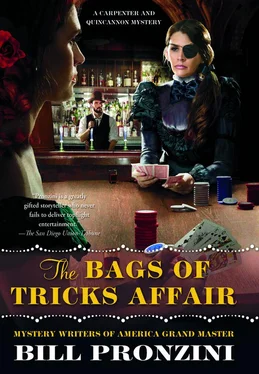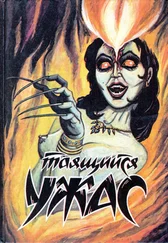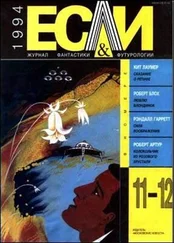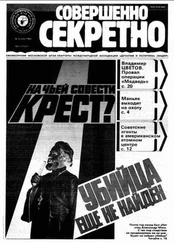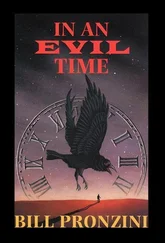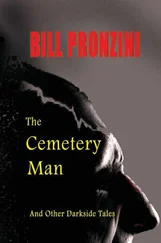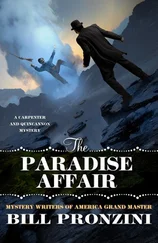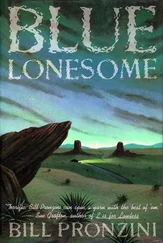The padlock was stout and secure; one hard yank told him that. He beat on one of the door halves with his gloved fist, shouted Sabina’s name half a dozen times at the top of his voice. The noise he made shattered the cottony stillness, roused a fluttering group of shorebirds nearby, sent echoes chasing one another across the wasteland. He paused to listen, then pounded on the doors and yelled her name again. And again. And again.
There was no response from within.
Frantic now, Quincannon turned away and ran past the buggy and the blowing roan to the tumbledown shed. There was nothing inside it he could use to break the padlock, nothing at all except planks and fragments of tarpaper from its half-collapsed walls and roof. Outside again, he headed toward where the skeletal remains of hoist and dry-dock facilities jutted up out of nests of tall grass and weeds.
That was when he heard the cry in the mist.
At first he thought it was a gull or some other bird, but when it came again he jerked to a stop. Not a bird, a voice shouting his name. Then he saw the figure materialize like an apparition on the wagon ruts thirty yards away, come stumbling toward him.
Sabina!
Emotion overwhelmed him as he ran to meet her. She was both a wonderful and a ghastly sight. Her face scratched and mud flecked, her hair hanging in wet, tangled strands like black seaweed, her hands and arms raw with cuts and blisters, her slender body draped in a filthy, sodden evening cape. And she was in the grip of exhaustion; he reached her just in time to keep her from falling, held her by the arms for a moment, then embraced her as gently as the intensity of his feelings would allow. She clung to him, shivering.
“I heard you shouting,” she said in a ragged half whisper. “I was hiding when you went by in the buggy, I couldn’t see you under the hood and I thought you were Gaunt. How did you know to come here...?”
This was not the time for explanations, either his, or hers of how she’d escaped the padlocked repair shop. “Not now. You need to get out of those wet clothes, then away from here and into a doctor’s care.”
“I’m... not badly hurt.”
“The risk of pneumonia, my dear.”
Quincannon lifted her into his arms, carried her to the buggy, placed her on the seat. She protested mildly when he took off the cape, the reason being that she wore nothing else except a wet, torn, muddy undergarment, but this was not the time for modesty, either. Swiftly he shed his greatcoat and slipped it around her. “Button yourself in after you’ve removed the undergarment,” he said. “I’ll wait with my back turned until you’re ready.”
It didn’t take her long. When she called him back, he climbed up beside her and removed his hat, placed it on her head; as large as it was, it came down to eye level, covering most of her wet hair and serving as further protection from the cold. He would have given her his gloves, too, but she already had her injured hands thrust deep into the coat pockets.
He took hold of the reins. Before he started the horse moving, he slipped his other arm around her shoulders and drew her against him. “To help keep you warm,” he said.
“Yes, my dear, I know.”
Despite the dire circumstances, her words deepened the tenderness he felt for her. He had addressed her as “my dear” on countless occasions, casually and not so casually; this was the first time she had ever used that term of endearment in return.
The nearest physician he knew of was one he’d had dealings with before — Dr. Emil Jorgensen, whose home and practice were on Third Street. The doctor provided regular treatments for the chronic gout suffered by Mr. Boggs, head of the San Francisco branch of the Secret Service and Quincannon’s former boss, and Quincannon had once had occasion to call on him for treatment of a minor gunshot wound. Jorgensen was competent, trustworthy, and discreet.
On the interminable buggy ride, there was little conversation until after they had crossed out of the marshland. Sabina pressed close, her hands thrust into the pockets of the greatcoat; its woolen warmth and Quincannon’s body heat ended her shivering except for a few random tremors. He was chilled himself, dressed as he was now in only his suit, vest, and gloves, but his own discomfort was of no consequence to him. His concern was entirely for Sabina’s welfare. He urged her to close her eyes and try to sleep, but the lurching and rattling of the carriage rendered that impossible.
Once they were back on city streets, she roused somewhat and asked him again how he’d known where she was. He told her. Then he asked the question that was uppermost in his mind.
“Did Gaunt harm you in any way?”
“No. Not in the sense you mean. An arm around my neck and a cloth soaked in ether over my nose and mouth. He was gone when I woke up in that... place.”
“And he didn’t come back at any time?”
“No. Simply left me there without food or water.”
To die of starvation or, far worse, the merciless assault of hungry rats. Damn Gaunt’s black soul to hell!
“How did you manage to escape?”
“By luck and force of will.” She briefly summarized the method she’d used; it was plain that she had no desire to relive the experience in detail. “If I had had an inkling that you’d be able to find me, I wouldn’t have been quite so desperate to get out.”
“But you didn’t. You couldn’t have. You did what you had to do to save yourself.”
It must have been after six o’clock when they finally reached Dr. Jorgensen’s. Fortunately he kept late office hours and there were no patients present when Quincannon helped Sabina inside. The doctor’s wife also served as his nurse; she took immediate charge of Sabina, ushering her into the surgery to cleanse her and provide hot liquids and garments to cover her nakedness, while Quincannon tersely explained to Jorgensen what had happened, making no mention of Jeffrey Gaunt’s name or the circumstances that had led to Sabina’s weakened and wounded condition. No questions were forthcoming; the doctor’s only interest, as always, was in fulfilling his Hippocratic oath and otherwise minding his own business. When Sabina was ready to be examined and her injuries treated, he hurried out without a word.
Quincannon waited, pacing and fidgeting in the anteroom. Every time his thoughts touched on Jeffrey Gaunt, a wild fury took hold of him. But it was an impotent fury, here and now, and served no purpose except to raise his blood pressure to the danger level. The time for retribution would come. Not soon enough to suit him, but not far off, either.
Mrs. Jorgensen appeared with a steaming mug of coffee for him. She wouldn’t say anything about Sabina’s condition; that was the doctor’s purview when he finished his ministrations.
Half an hour crawled away. And another fifteen minutes before Jorgensen appeared. His thin, ascetic face was as expressionless as always, but there was reassurance in his voice when he spoke. “Mrs. Carpenter is as well as can be expected under the circumstances. Hypothermia, three days without water or nourishment, numerous lacerations and abrasions... most women would be prostrated by such an ordeal.”
“She will be all right?”
“Barring the onset of pneumonia, yes, and I could detect no pulmonary edema — fluid in the lungs. Complete bed rest is indicated. I recommend she remain here for two or three days, where my wife and I can keep a close eye on her. We have the facilities, as you know.”
“Whatever you say, Doctor. I’d like to see her before I leave.”
“I’ve given her a sleeping draught. But yes, briefly, if she is still awake.”
Sabina was in the Jorgensens’ two-bed ward at the rear of the house. Both her hands had been bandaged, iodoform dabbed on a facial cut, and her hair rubbed dry and covered with a woolen cap. She appeared small and pale and very young — an image that brought a lump to Quincannon’s throat.
Читать дальше
